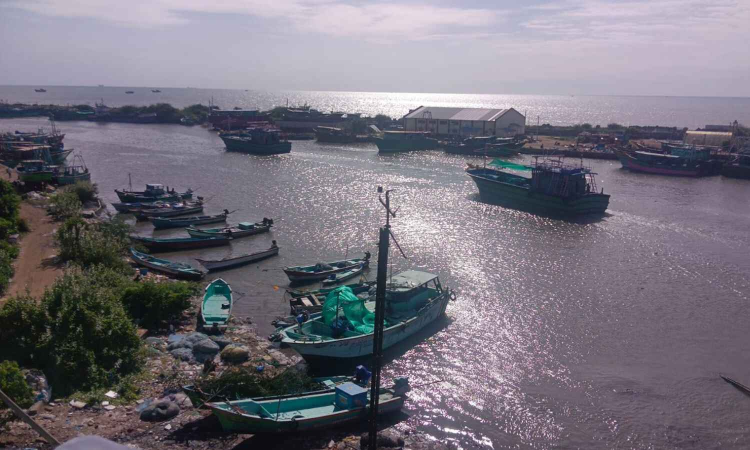Future looks promising for Tamil Nadu fishermen
Apart from arrests for crossing IMBL, the state fishermen also undergo frequent attacks by their Sri Lankan counterparts; however, a positive outcome is expected after delegations from both countries have agreed upon a mutual understanding on the situation

Mechanised boats venturing into the sea from Nagapattinam
TIRUCHY: Tamil Nadu fishers who have been facing frequent arrests on charges of crossing the International Maritime Boundary Line (IMBL) at the Palk Strait would soon get a good news as the bilateral talks between India and Sri Lanka has witnessed positive approach and negotiations are being made to solve the mid-sea issues faced by the Indian fishermen particularly those who are from Tamil Nadu.
Palk Street is a narrow strip of water separating Tamil Nadu and the Northern Province of Sri Lanka and the Gulf of Mannar, where the controversial Katchatheevu is situated.
Sources revealed that four rounds of talks have already been done during the past few years with delegations from both countries comprising fishermen and high command officials, almost reaching the conclusive stage. The fishermen's delegation from both countries has agreed upon a mutual understanding of the situation.
“Our Minister for External Affairs, S Jaishankar, knows the issue every inch as he had already been serving as the Secretary of the External Affairs Ministry for a long time and was present during every talk during the early days. And now, he, as a minister, is focused on solving the issue at once and is scheduled to have a final round of talks with Sri Lanka shortly and thereafter, a permanent solution will be arrived at. The final bilateral talks by delegations were over three months back in which 12 fishermen representatives from each nation took part,” said M Ilango, Chairperson, National Fishworkers’ Forum (NFF) affiliated to World Forum of Fisher People and one of the members of Indian delegation present during the bilateral talks with Sri Lanka recently.
Ilango said that the concerns about the Sri Lankan fishermen were the use of bottom-line trawlers by their Indian counterparts.
“Our fishermen used to go almost close to the Sri Lankan boundary and use the trawlers, which would affect the ecosystem in the ocean and also would scoop up eggs and young fish in the region. Though the Indian government had found an alternative to bottom line trawling for deep-sea fishing, our fishermen are in an intention to use them deliberately, and this erupts into clashes,” Ilango claimed.
Apart from the arrests for crossing IMBL, presently, the Tamil Nadu fishermen undergo frequent attacks by their Sri Lankan counterparts.
Since the culmination of the fishing ban period, at least six such attacks were witnessed by the Tamil Nadu fishermen, particularly from Nagapattinam and Mayiladuthurai.
“This is because of the poor life standard of the Sri Lankan Tamil fishers. After the Sri Lankan civil war, the SL Tamil fishers who are living in the northern province of the island lost their mechanised boats and thus their livelihood. However, it seems that their government has done little for the betterment of the Tamil fishermen who are now battling for their livelihood with a few country boats. They intend to attack our fishermen and snatch away the catches for their living,” Ilango justified.
However, the fishers claim that they have not been intentionally crossing the IMBL but have drifted away due to heavy wind flow and thus, unaware of crossing the borderline.
“We ask the fellow fishers from the region to be aware of the IMBL which has also been recorded in their GPS but we cannot blame the nature for any reason as most of them are drifted away due to heavy wind flow,” asserts A Thajudeen, Vice President Tamil Nadu Fishermen Welfare Board and President, Tamil Nadu Mechanised Boat Owners Association.
“When the diplomatic talks end fruitfully, the livelihood of the fishermen from India too would enhance a few demands like a change in ban period pattern, profitable pricing for marine products and enhanced subsidy of diesel,” Thajudeen added.
ALSO READ
* Tamil Nadu: Importance of Katchatheevu for fishing activities



